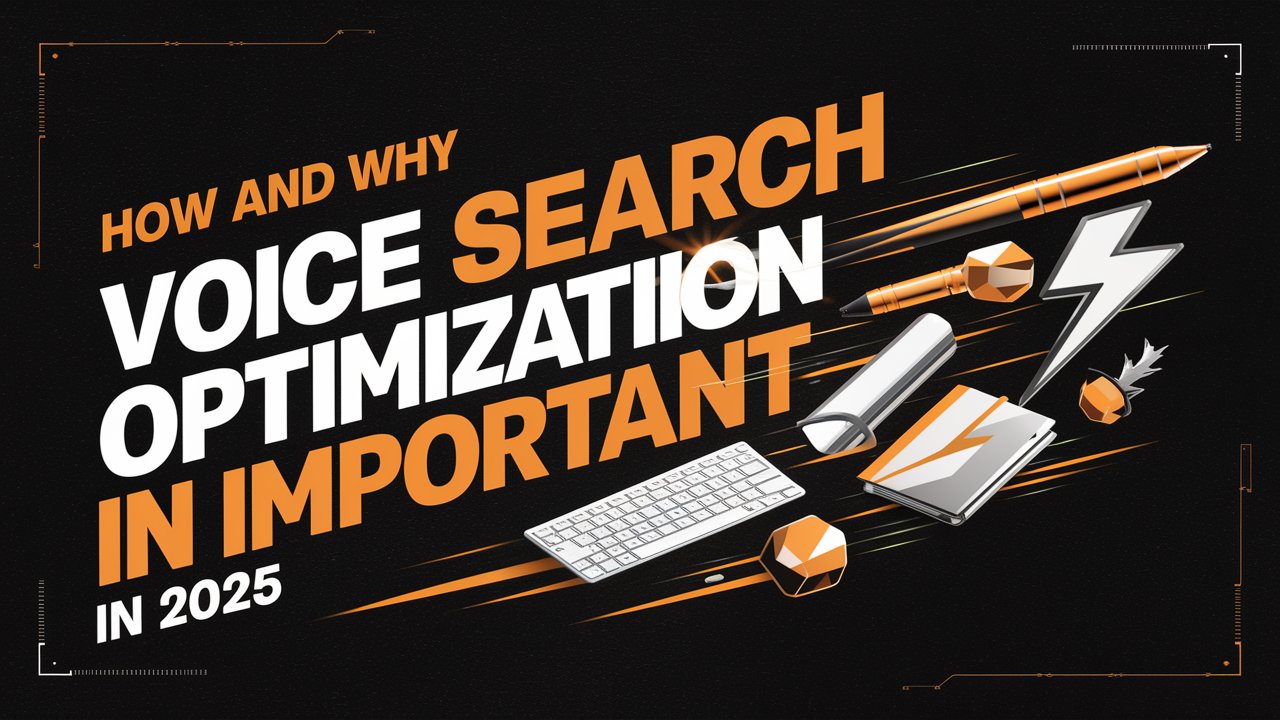How to Become an SEO Expert in 2025: A Complete Guide by Ravi Singh Rajput
Search Engine Optimization (SEO) continues to be an important skill in the digital marketing world, and the demand for SEO experts is only growing. If you’re interested in building a rewarding career as an SEO specialist or becoming a professional SEO consultant, this guide is for you. I, Ravi Singh Rajput, will walk you through the steps to mastering SEO in 2025. Whether you’re a beginner or looking to level up your skills, this blog will give you a roadmap to success.
Introduction
Hi, I’m Ravi Singh Rajput, and if you’re looking for how to become an SEO professional in 2025, you’re in the right place. SEO is not just a career; it’s the art and science of optimizing content to rank higher on search engines like Google. Whether you aim to work as an SEO executive, a search engine optimization specialist, or even a freelance SEO consultant, this blog will guide you through the skills and steps required to succeed.
So, Become an SEO Expert in 2025
1. Why Choose an SEO Career?
The field of SEO offers excellent opportunities for growth, both professionally and financially. Here’s why you should consider becoming an SEO analyst or SEO strategist:
- High demand for SEO expert services across industries.
- Flexibility to work remotely in SEO work-from-home jobs.
- Opportunity to start your own business as an expert SEO consultant.
- A lucrative field for freelancers offering SEO expert services globally.
SEO professionals in India, including SEO experts India, are especially in demand due to the country’s growing digital landscape.
2. Important Skills for an SEO Expert
To excel as a search engine optimization specialist, you need to master specific skills:
- Keyword Research: The foundation of any SEO strategy.
- Technical SEO: Includes understanding website architecture, crawling, and indexing.
- Content Optimization: Crafting SEO-friendly content that resonates with the audience.
- Analytics and Reporting: Tracking performance and improving strategies.
- On-page SEO: optimizing website content, meta tags, headings, and other on-page elements to improve search engine rankings.
- Link Building: Acquiring high-quality backlinks from reputable websites to boost website authority and visibility.
- Proficiency in SEO Tools: Using tools like Google Analytics, Google Search Console, SEMrush, Ahrefs, and others to track website performance and implement SEO strategies.
- Basic Coding Skills: Understanding HTML, CSS, and JavaScript can be helpful for technical SEO tasks and website optimization.
For beginners, roles like SEO jobs for freshers are a great starting point to build these skills.
3. Understanding SEO Basics
What is SEO?
SEO, or Search Engine Optimization, is the process of improving a website’s visibility on search engines. As an SEO analyst or SEO specialist, you’ll focus on enhancing the site’s content and technical aspects to rank higher.
Types of SEO
1. On-Page SEO:
- Keyword Optimization: Using relevant keywords in titles, headings, meta descriptions, and content.
- Title tags and meta descriptions: creating compelling and keyword-rich titles and descriptions.
- Header Tags (H1, H2, H3, etc.): Structuring content with clear headings.
- Image Optimization: Using descriptive file names, alt text, and compressing images.
- Internal Linking: Creating a logical internal linking structure.
- URL Structure: Using clean and keyword-rich URLs.
2. Off page-SEO
This involves building backlinks and promoting a website through external sources to increase its authority and visibility. Key techniques include:
- Backlink Building: Acquiring high-quality backlinks from reputable websites.
- Social Media Marketing: Promoting content on social media platforms.
- Guest Posting: Writing guest posts on other websites.
- Online Directories and Listings: Submitting the website to relevant directories and listings.
- Brand Mentions: Keeping brand mentions and discussions online.
3. Technical SEO:
This focuses on the technical aspects of a website that affect its search engine visibility and performance. It involves:
- Website Speed Optimization: Improving website loading speed.
- Mobile-Friendliness: Ensuring the website is optimized for mobile devices.
- XML Sitemap: Creating and submitting an XML sitemap to search engines.
- Robots.txt: Using a robots.txt file to instruct search engine crawlers.
- HTTPS: Implementing HTTPS to secure the website.
- Schema Markup: Using schema markup to help search engines understand the content.
4. Beyond Technical SEO: Advanced Strategies
The Growth of Content Providers
Although it is an important component, technical SEO is only one part of the picture. Consider these smart methods:
AI-Powered SEO:
- Leveraging AI tools for keyword research, content generation, and competitor analysis.
- Using machine learning to predict search trends and optimize content accordingly.
Voice Search Optimization:
- Optimizing content for voice search queries by using natural language and long-tail keywords.
Local SEO:
- Optimizing your website for local search by claiming Google My Business listings, building local citations, and encouraging reviews.
International SEO:
- Targeting specific geographic regions by creating localized content, using hreflang tags, and setting up country-specific domains.
- E-commerce SEO:
- Optimizing product pages, category pages, and site search to improve visibility in search engines.
- Implementing schema markup for products to enhance rich snippets.
Technical SEO is vital for roles like SEO strategist or SEO analyst jobs as it directly impacts site performance.
Building a Strong SEO Roadmap
Your SEO roadmap should include clear goals, measurable KPIs, and a timeline for achieving results. This is a skill that separates an SEO professional from a beginner.
5. The Role of an SEO Expert Consultant
As an SEO consultant, your job is to provide actionable strategies to clients or employers. This may include:
- Conducting SEO audits.
- Suggesting improvements for better rankings.
- Offering SEO expert services tailored to client needs.
If you aspire to work as an SEO expert consultant, focus on building strong communication and analytical skills.
6. How to Get Real-World Experience
Start Your Own Projects
Building your own website or blog is the best way to test and apply your SEO skills.
Internships and Entry-Level Jobs
Roles like SEO jobs for freshers or SEO executive are ideal to start your career.
Freelance Work
Platforms like Upwork and Fiverr are excellent for offering SEO expert services and gaining client experience.
7. Tools Every SEO Specialist Should Know
Core Tools:
To become the best SEO expert, mastering these tools is essential:
1. Google Search Console:
- Directly from the source, Google Search Console provides invaluable insights into your website’s search performance, indexing status, and technical issues.
- Key Features:
- Keyword research
- Backlink analysis
- Site health monitoring
- Crawl errors identification
2. Google Analytics:
- This tool helps you understand user behavior on your website.
- Key Features:
- Traffic analysis
- User engagement metrics
- Conversion tracking
- Audience demographics
Advanced SEO Tools:
1. Ahrefs:
A comprehensive SEO toolset for keyword research, backlink analysis, and competitor analysis.
- Key Features:
- Site Audit
- Keyword Explorer
- Backlink Checker
- SERP Checker
2. SEMrush:
Another powerful all-in-one SEO tool for keyword research, competitor analysis, and backlink analysis.
- Key Features:
- Organic Research
- Site Audit
- Backlink Analysis
- Brand Monitoring
3. Moz:
Offers a suite of tools for SEO, including keyword research, link building, and site audits.
- Key Features:
- Keyword Explorer
- Link Explorer
- Site Audit
- SEO Toolbar
A desktop application that crawls your website to identify technical SEO issues.
- Key Features:
- On-page SEO analysis
- Broken link detection
- XML sitemap generation
- Redirects analysis
5. SEOptimer:
A free SEO audit tool that provides actionable recommendations to improve your website’s SEO.
- Key Features:
- On-page optimization checks
- Mobile-friendliness analysis
- Loading speed analysis
6. SimilarWeb:
A tool to analyze website traffic and market trends.
- Key Features:
- Traffic sources analysis
- Competitor analysis
- Audience demographics
2. Off page-SEO
Additional Useful Tools:
- Google Keyword Planner: For keyword research and forecasting.
- Google PageSpeed Insights: To measure website loading speed.
- GTmetrix: For in-depth website performance analysis.
- Rank Math: A WordPress plugin for on-page SEO optimization.
- AnswerThePublic: For visual keyword research.
8. SEO Jobs and Work Opportunities in 2025
Work-from-Home Jobs
Many companies now hire for SEO work-from-home jobs, making it a flexible career choice.
Freelancing
Becoming an experto SEO allows you to work with clients worldwide.
Corporate Roles
Positions like SEO analyst jobs or SEO specialist jobs are available in digital marketing agencies and corporate sectors.
Conclusion
Becoming an SEO expert in 2025 requires dedication, practice, and continuous learning. By following the steps outlined in this blog, you can build a successful career as an SEO strategist, SEO analyst, or even a technical SEO expert. Remember, the key is to stay updated with the latest trends and adapt to the ever-evolving SEO landscape.
I, Ravi Singh Rajput, hope this guide has inspired you to start your journey as a search engine optimization specialist. With the right skills and mindset, the sky’s the limit!
Frequently Asked Questions (FAQs)
Q1: How long does it take to become an SEO expert?
With consistent learning and practice, you can master SEO in 6-12 months.
Q2: Do I need a degree to become an SEO professional?
No, but certifications and hands-on experience are crucial.
Q3: Can I work remotely as an SEO consultant?
Yes, many SEO work-from-home jobs and freelance opportunities are available.





Pingback: How do backlinks improve SEO?
Pingback: what is the best strategy for SEO backlinks?
Pingback: How Do I Hire an SEO Expert